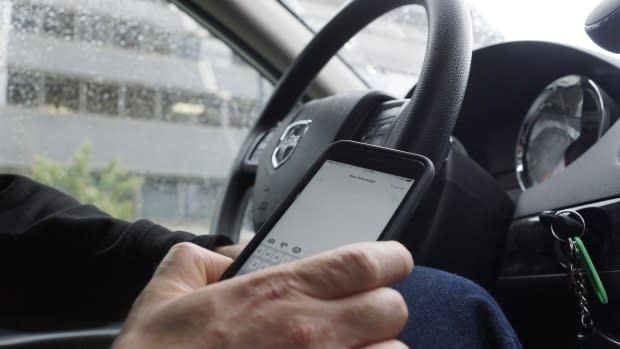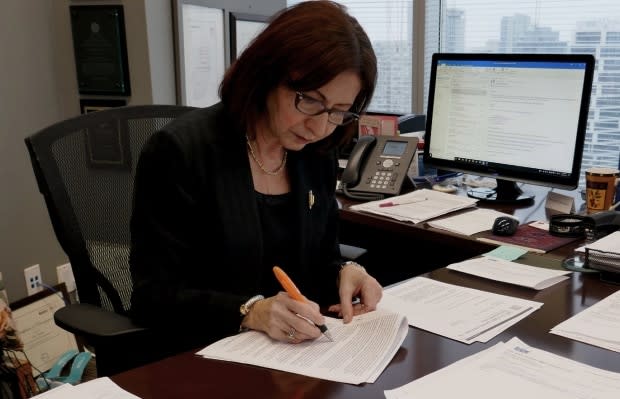Think twice before you hand your phone to police to show auto insurance, experts say
Ontario drivers should think twice about handing over their unlocked phone to a police officer to show electronic proof of insurance, privacy experts say.
The province announced last week that Ontarians can now carry auto insurance information on their smartphones instead of relying on paper copies. Finance Minister Rod Phillips heralded the convenience that move will bring — but privacy watchdogs aren't exactly doing back flips about it.
"Handing your unlocked phone to a police officer raises a number of issues," said Ann Cavoukian, executive director of the Global Privacy and Security by Design Centre.
"Your phone is not just a phone these days. It contains a massive amount of personal information that you may not want to share with others," she said.
These days the intimate history of our lives is contained on our phones. - Brenda McPhail, Canadian Civil Liberties Association
Phillips said last week the usual pink paper insurance slip isn't being eliminated yet, but being able to display the information on a phone will be more convenient for many drivers. He added that similar digital options exist in Alberta, Nova Scotia and Newfoundland and Labrador.
"We've all had enough paper in our lives, at least me, for one, I have experienced rummaging through the glove box, looking for that little pink slip," Phillips said. "Well, as of today, your rummaging days are over if you choose this electronic option."
There will be a one-year phase-in period where insurers will have to issue a paper card in addition to the electronic option if it is requested. The province says the paper pink card is not being eliminated, so drivers will still have that option if they choose.
"Electronic proof of insurance simply provides an option for Ontario drivers who own or lease a motor vehicle, including motorcycles and trucks, to access their auto insurance card in the way that best suits their needs," said Ministry of Finance spokesperson Marc Pichette in an email.
'This should be optional'
Brenda McPhail, director of the privacy, technology and surveillance project at the Canadian Civil Liberties Association, told CBC News that the province's messaging is all about seeing convenience, and not thinking about any other implications.
"We have to be careful that this isn't yet another occasion where we're being asked to hand over our privacy for the sake of supposed convenience," she said.
"At a minimum, this should be optional."

According to a recent bulletin from new regulator the Financial Services Regulatory Authority of Ontario, electric insurance cards in Ontario must be able to be viewed on a phone using "lock screen capability."
"That is, the card must be capable of being 'locked,' either by design or by the policyholder activating the function and changing settings on their electronic mobile device if required," the bulletin reads.
"Lock screen capability is an important privacy protection feature that is necessary to ensure policyholders can reduce the risk of privacy intrusions when other persons are viewing their insurance card."
The province said in a statement that the onus is still on drivers to use the screen lock function and "make sure personal information is protected."
Private and personal
Andrew Clement, professor emeritus with the faculty of information at the University of Toronto, told CBC News that when it comes to phones and police, drivers should make sure they "retain control of it at all times."
"Police should be trained to make clear to individuals their right to retain control," Clement said in an email, adding that insurance credentials should be easily readable on a phone while still in its owner's hand.

Canada has strict rules around what a police officer can and can't look at on person's phone when they are arrested, and equally strict rules should exist when it comes to this process, McPhail said.
"These days the intimate history of our lives is contained on our phones," she said.
"It's details about where we are, and when we're there and what we do. It's details about who we know and what we've said to them. It's photos of public events and potentially intimate moments," she said. "Essentially, the minutiae of our day to day lives are contained on that little device.
"And it's private, and it's personal — and our courts have recognized that we have heightened expectations of privacy and cellphones precisely because of both the quantity and the quality of the information they contain."
adam.carter@cbc.ca

 Yahoo Finance
Yahoo Finance 